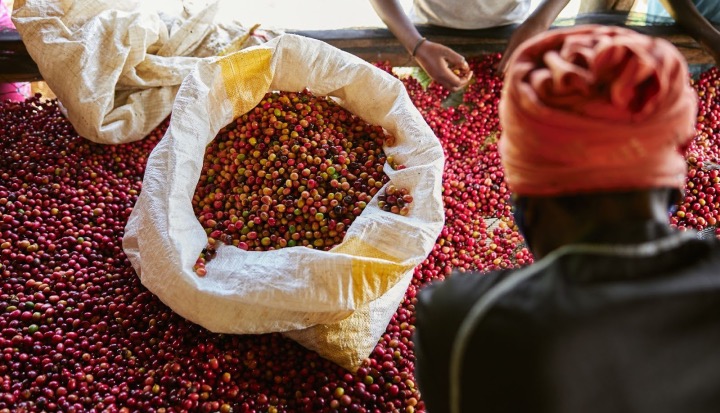The global coffee industry, worth billions of dollars, relies on millions of small farmers. However, how much do we know about their lives and struggles?
Many foundations, NGOs and coffee companies together invest millions of dollars in programs and certifications aimed at improving the lives of these farmers. platforms like The Sustainable Coffee Challenge bring together over 100 players across the industry to promote ethical coffee sourcing while supporting farmers with a commitment to fair payments and the adoption of sustainable farming practices.
However, among these programs, farmers’ own perspectives on whether or not they improve their welfare are rarely or inconsistently measured.

To address this gap, we partnered with the Small Foundation to publish a first of its kind reportUsing the 60 Decibel Farmer Development Index to uncover deep insights into the realities of coffee farming in East Africa. By hearing directly from thousands of coffee farmers* in Uganda and Rwanda, the report seeks to answer an important question: are farmers in coffee supply chains thriving or just surviving?
The research covers key aspects of farmer welfare, including living standards, food security, sustainability and coffee farming. The findings paint a nuanced picture of the challenges and opportunities facing those at the heart of the coffee supply chain. While you can explore the full report here, here are seven key takeaways from the 3,000 coffee farmers we spoke to:
- Profitability remains elusive
More than a third of Ugandan coffee farmers said they did not make a profit last year, while 21% reported a loss. Growers are vulnerable to market fluctuations and climatic conditions that make crop seasons unpredictable.
- Financial Vulnerability Widespread
46% of Ugandan farmers reported that they had not saved at all in the past year, leaving them dangerously exposed to financial shocks. Another 22% saved occasionally or once every few months. Thanks to higher incomes in the region, farmers in Central Uganda have easier access to emergency funds than their peers in other regions.
- Access to Critical Services is Unavailable
Only 19% of Ugandan coffee farmers have reliable access to agricultural extension, with regional variations (eg 41% in Western Uganda). Despite 71% practicing intercropping, the adoption of other sustainable practices such as composting, water conservation and biological pest control remains low. Access to other basic services is also limited: insurance (2%), weather information (12%) and credit (11%).
- An unwavering commitment to coffee
Despite the challenges, farmers remain committed to their craft. Almost all expect to continue producing coffee for at least the next 5-10 years, and 81% hope their children will follow in their footsteps.
- Food Security Makes a Promise
Overall, 57% of Ugandan coffee farmers face “minimal” food insecurity. Definitions of IPC. 29% of farmers are classified as food “stressed” – more so among households surveyed during the growing season (when they are not harvesting). Food security is also somewhat lower in the northern region.
- Coffee processing creates added value for farmers
The study found that 55% of Ugandan farmers sell most of their coffee as parchment, which is associated with better prices and profitability compared to selling raw cherries. Parchment sellers demonstrate improved financial resilience, save more regularly and deal better with emergencies. They also report greater food security.
- The crucial role of cooperatives
Farmers in four participating Ugandan cooperatives report better access to basic services (80% vs. 51% for non-members). They show greater adoption of sustainable farming practices and are more likely to get good prices, make profits, save regularly and manage emergencies with ease.
A call for farmer-centric accountability
In sharing these findings with the sector, the aim is to encourage all players in the coffee industry, and indeed all smallholder-based industries, to adopt similar farmer-oriented approaches.
This initiative was a pilot to test the concept and demonstrate the power of standardized measurement based on the voice of the farmer. Standardized welfare metrics can drive meaningful change by ensuring that sustainability efforts truly benefit those at the heart of the supply chain.
We invite coffee brands, cooperatives, exporters and all stakeholders to use this data – by collectively prioritizing farmers’ voices and well-being, we can build a fairer and more sustainable coffee industry for all.
If you’d like to talk more about these findings or the ongoing Farmer Development Index, I’d love to get in touch.
Download the Complete Coffee Farmer Development Index Here
*Information from this report was collected in two ways:
- Uganda National Survey (October 2023): A random sample of coffee farmers in Uganda to establish a benchmark for a “typical” producer.
- Cooperative Surveys: Random sampling of members from four Ugandan and four Rwandan cooperatives participating in the Farmer Development Index.

